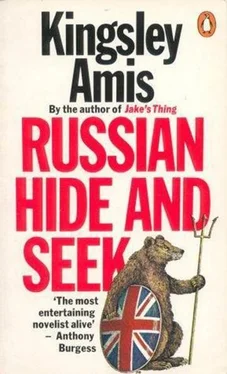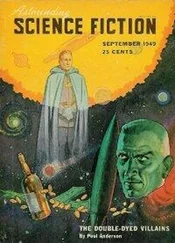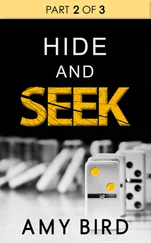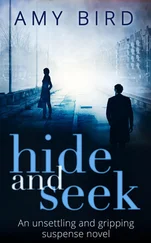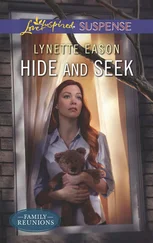
Kingsley Amis
Russian Hide-and-Seek
© 1980
a melodrama
The sheep clustered by the infant oak-tree looked up suddenly and turned their heads. Something was coming towards them over the close-cropped turf, coming fast. At the same time a low noise that might have been the beginning of a storm grew steadily louder, and there seemed to be a vibration underfoot. The sheep swung abruptly aside and started to run.
What had alarmed them was not one being but two, a pretty five-year-old black mare with a fine head and good bone, and in the saddle a young soldier, fair-haired, pink-cheeked, with light-blue eyes that sometimes had the look of not fully taking in what they saw; they had that look now. He rode with great dash and some carelessness, but the mare had been schooled by the regimental farrier-major himself and would have been equal to much less prudent horsemanship. She was remarkably well balanced, the most necessary of qualities on occasions like the present, a full gallop across ground broken by badger setts and tree-roots.
Man and mount came up with the sheep, which had not had the sense to scatter and were moving in a series of aimless curves. The young man amused himself for a time by circling as closely as he could round the bleating, flinching group. He laughed and shouted and swore at his victims. Then one of the ewes, more enterprising or more fearful than the rest, broke away at a tangent, only to attract the rider’s whole attention. Quite soon, harassed, jostled and more than once nearly sent sprawling, the solitary sheep ceased to run and let out a sound not unlike the cry of a human infant. At that, the young man wrenched his horse’s head round and made off at top speed, not slackening till he reached the side of a road a couple of hundred metres off. Here he halted and sat motionless with face lowered, biting his lips and swallowing every few seconds. When he reached out his hand to lay it on the mare’s neck it was trembling violently. He sat on while a mule-drawn waggon full of marigolds went by. The two men in it touched their caps to him, but he appeared not to see them at all. At last he gave a deep sigh and raised his head. His eyes were full of tears.
After walking his horse a kilometre or so along the road the young man turned off to his right and went through a small churchyard by a path that ran among ancient gravestones, some of them fallen. He dismounted to negotiate a low gateway of brick and stone. To his left front was situated a grand house in the style of the early eighteenth century; ahead and to his right were extensive gardens with trimmed shrubs and hedges, ornamental steps leading up to a stone summerhouse, a large artificial pond and hundreds of tree-stumps -oak, holly, pine and, most noticeable of all, cedar: the specimen that in former times had stood at this south-east corner of the house had measured nearly two metres across at its thickest part. Other trees, mainly oak and ash, were still entire, but none was much more than twenty years old. Not that the young man could have identified any of them or estimated their age; to him they were trees or what was left of trees.
He hitched the mare to a miniature temple with stone pillars and a wrought-iron roof bearing a weather-vane. It was early in the evening of a fine July day, warm and tranquil, but he showed no sign of tranquillity. He hurried up the steps and into the house, where he raised his voice and called in a peevish tone. Very soon a white-haired man with a large moustache and lined cheeks came bustling up. He wore a brown frock-coat and had a pink kerchief round his neck, and he was sweating slightly.
‘Good evening, your honour.’
‘Send somebody to take Polly to the stables, will you?’
‘Where is she, sir?’
‘Where she always is at such times, in the name of Heaven -down by the little temple.’
‘Yes, sir. I’ll see to it. Leave it to me, your excellency.’
The young man walked up the hall and reached the foot of the impressive staircase. Here stood a pedestal surmounted by an alabaster urn, perhaps the survivor of a pair. On the floor above, past the empty niches at the stairhead, in the gallery that ran the full width of the house, displayed against some inconsiderable remains of panelling, were three further objects from the past: a painting of two largely naked male children and a lamb, a large tapestry showing a meeting between two exalted persons of antiquity, as it might be a legendary king and queen, and the portrait of a woman in her thirties, no doubt a long-departed member of the family once in possession. These and the urn had been discovered by chance only four years earlier, in a papered-over cupboard. Everything else in the building that was portable, even if portable only at the expense of truly herculean effort, had gone.
Such abstruse relics made no appeal to the young man in his present mood, but he strode along the gallery, a tall slim figure with at the moment a firm gait and upright bearing, and reached the great window in the east front, that by which he had just entered. Through the imperfect glass (it was not the original glass) he looked down with the same half-attentive gaze as when he was galloping towards the sheep, and indeed his mind’s eye was not so much on what he saw as on what he knew had once been there: the pond in the shape of a semicircle with a step in its margin at each side near the base and a metal statue in its middle, beyond this an avenue of slender trees – cypresses, four hundred metres away a small lake exactly in line, below the window and round the pond carefully-trimmed blocks of yew hedge, stone statues, a low wall with diminutive stone lions along the top. The pond and the lake were still there, of course, but nothing else was. Shadow covered the nearer part of the outlook as the sun went down on the other side of the house.
He turned with his habitual abruptness and went into the room that had been on his left. Its floor was covered with canvas on which heavy, dark-coloured rugs has been thrown. On the walls there were numerous pictures of far more recent date than the two in the gallery: landscapes under snow, peasant merry-makings, still-lifes with much use made of unflippant materials like bread, potatoes and onions, military scenes. There was a birchwood dressing-table, a birchwood writing-table, a birchwood bookcase half-full of novels by forgotten writers, plays, collections of poems and army manuals, birchwood chairs, a birchwood bed. On the writing-table stood an opened bottle of white drinking-spirit and an elaborately-engraved glass. The young man poured himself about a tenth of a litre and took it down in a single swallow. Coughing hard, turning red in the face, he undid the bone buttons of his high-necked grey tunic, wrenched it impatiently from his shoulders, flung it aside, dropped face down on the bed and lay without moving from his first position.
After no more than a minute there came a gentle tap at the door. He spoke with his face against the bolster.
‘Who is it?’
‘May I see you, Alexander?’
‘All right, come in then, mummy.
A good-looking woman of fifty or so, rather short and stooped, entered the room carrying a raffia flower-basket full of pink roses. She frowned in a way that indicated more anxiety than annoyance and no disapproval at all.
‘Alexander, I don’t think you should just lie there like that when your mother approaches you.
Soon, but not immediately, the young man lifted himself up from the bed and kissed her without much warmth. ‘I’m sorry, mummy, I was miles away. What you call day-dreaming.’
Читать дальше
